Nebraska Lawmaker Proposes Grant for AI Tools to Combat Dyslexia
Bill would create the Dyslexia Grant Research Program to support businesses researching AI-based writing assistance tools for people with dyslexia.
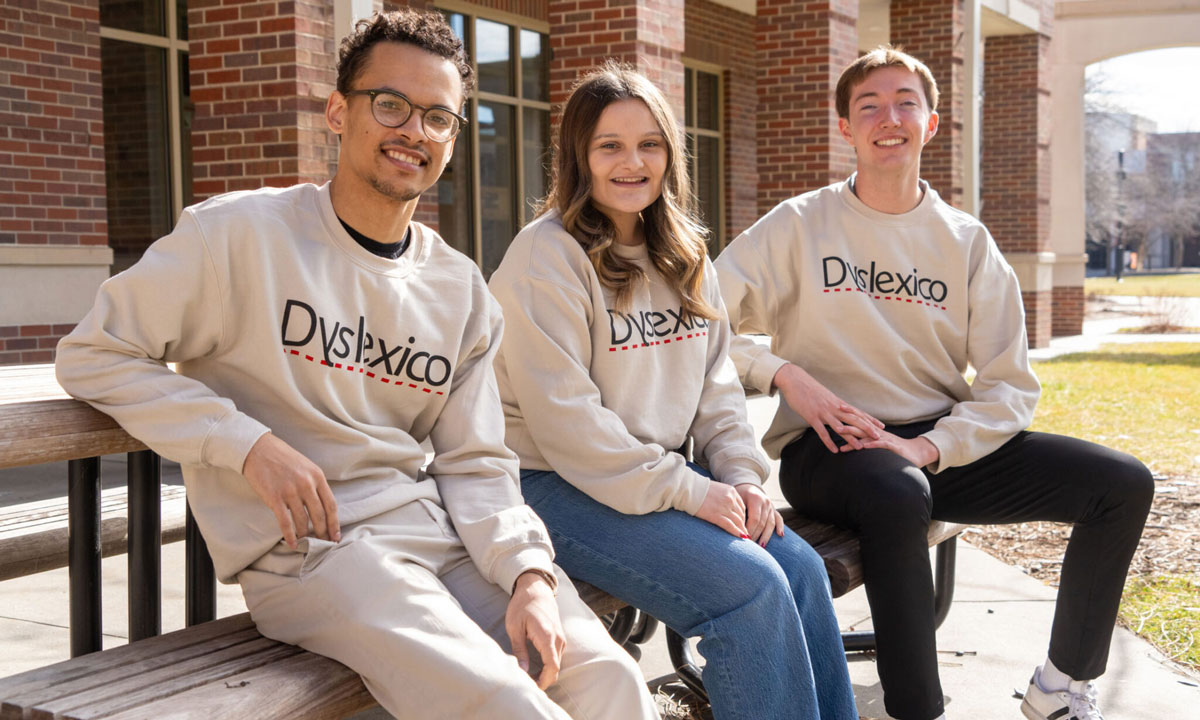
Get stories like this delivered straight to your inbox. Sign up for The 74 Newsletter
LINCOLN — When Millard North High School junior Janae Harris was in second grade, she read to a kindergarten class but kept getting stuck on words.
The teacher continually corrected her, Janae said, and told her she “needed to learn how to read” before she read to another class.
“I was embarrassed, and to this day it is terrifying to read out loud, and I continuously struggle to overcome it,” Janae told the Legislature’s Education Committee on Monday. “This moment will replay in my head forever.”
Janae, who is in Millard’s STEM Academy and is captain of her school’s girl’s lacrosse team, among other involvements, has dyslexia. She testified in support of Legislative Bill 1253 to create a Dyslexia Research Grant Program for new technologies.
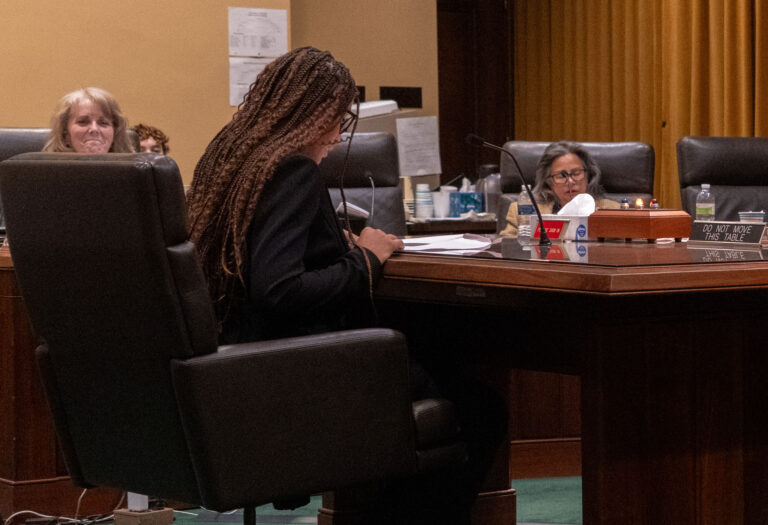
“I want to do everything in my power to minimize the struggles of dyslexic students,” Janae said.
‘Proficient, capable communicator’
State Sen. Lou Ann Linehan of Elkhorn, who introduced the bill, also has dyslexia and has fought for years to support students with dyslexia. The proposed research program would set aside $1 million for Nebraska businesses researching artificial-intelligence-based writing assistance for individuals with dyslexia.
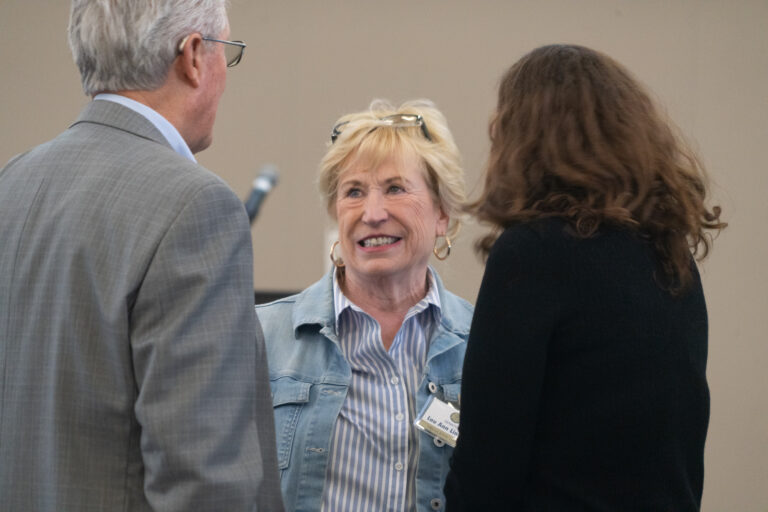
Linehan told the Nebraska Examiner that some educators have long discredited the lifelong disorder or cast it off as having to do with a student’s IQ or intelligence. She herself has struggled with the disorder, recalling how “horrified” she felt before her 1995 interview to work for then-U.S. Senate candidate Chuck Hagel.
She said she worried about whether she could communicate and whether Hagel would understand.
“I finally just told him, and he said, ‘Well, that’s easy. We’ll just get somebody to proof all your stuff,’ which is what we did,” Linehan said. “Then I got to the point where I was proofing things because somebody showed me how to have a tool so that I could become proficient.”
Linehan later served as Hagel’s campaign manager and his chief of staff in the U.S. Senate and said the impact of such research could be “huge.”
“This program could take a student who was afraid to write, afraid to communicate, struggling through college, and turn them into a proficient, capable communicator,” Linehan said.
It’s estimated that as many as 15%-20% of the world’s population has dyslexia, according to the International Dyslexia Association.
‘Fully partake’ in learning
In the past year, a group of University of Nebraska-Lincoln college students working in this field approached Linehan to discuss their fledgling business, Dyslexico, which they started about two years ago in the UNL Raikes School, based on the experiences of one of its co-founders, Grace Clausen.
Clausen, who has dyslexia, grew up in a school system that didn’t always work for her, according to fellow Dyslexico co-founder Bridget Peterkin of Omaha.
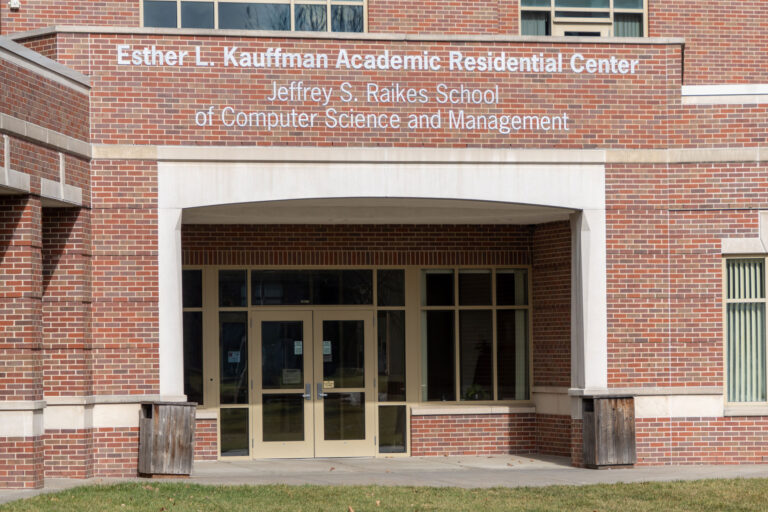
Peterkin said corrective writing tools — from Word or Google Docs to Grammarly — do not always work, and other AI-based models, such as ChatGPT, may add words a writer didn’t intend.
In one example Peterkin showed to the Examiner, a student wrote “wondering” when they meant “wandering.” In another, the student wrote “I say a figure” instead of “saw.”
“It was never going to catch that because it was spelled correctly,” Peterkin, a senior computer science major at UNL, said of other spelling or grammar programs.
Unlike other programs, the Dyslexico software is powered through AI but finds a middle ground in not rewriting sentences, as ChatGPT did to grow with users over time and provide analysis that Peterkin and her team said might be able to help educators.
“We want to have a solution for the schools that helps students have the support to get their spelling and grammar correct while they can maintain their original voice and be able to fully partake in the learning process,” Peterkin said.
Another Nebraska-born startup that got its start in the Raikes School has grown to international success: Hudl, which has a goal of “building the future of sports” with video and data entry.
Getting into students’ hands
Tristan Curd of Omaha, Dyslexico project manager and a senior computer science major at UNL, said Dyslexico has gotten into the hands of students and successfully launched with a public beta version last year. Dyslexico is also available online.
In the last year, Dyslexico entered agreements with two schools for test runs, providing developers with some feedback from The Pittsburgh New Church School for Children with Dyslexia and Millard Public Schools.
“There’s always going to be that distinction between us developing it and the actual users using it,” Curd said. “To get that info, it’s big.”
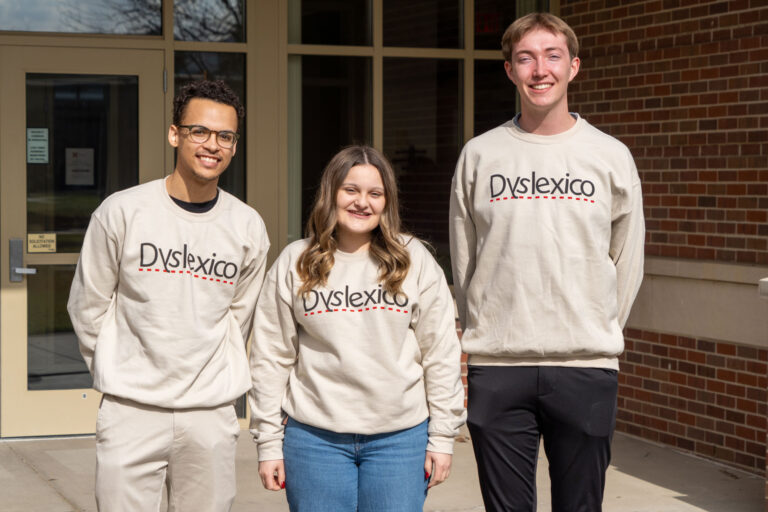
The company is also in talks to partner with Services for Students with Disabilities at UNL. Pablo Rangel, a disability specialist with SSD, testified before the Education Committee Monday in support in his individual capacity.
‘Independence and autonomy’
Rangel, who has dyslexia, said he could have benefited from such a program. He said Dyslexico could better prepare all K-12 students for college.
“The Dyslexico software does for individuals with dyslexia what prosthetics do for people who are missing a part of their body,” Rangel said. “It supports independence and autonomy for a person to move forward where typically they might retreat and give up.”
Colby Coash, on behalf of the Nebraska Association of School Boards and the Educational Service Unit Coordinating Commission, also testified in support of LB 1253.
Nick Lauver of Papillion, a business development associate for Dyslexico and a senior actuarial science and finance double major at UNL, said the company has already heard about some successes from educators, which have been “some of the brightest points” in the software’s development.
‘Redundant and unnecessary’
Megan Pitrat, a 10-year special education teacher in Syracuse, testified in opposition to LB 1253 on behalf of the Nebraska State Education Association. She said that while dyslexia is a problematic disorder, there are already systems in place to help students.
“I believe that allocating funds to research something that is already being serviced within the functioning system is redundant, unnecessary and a waste of precious funds that could instead be used to support teachers and systems that, as always, do the best with what we are given,” Pitrat testified.
State Sens. Lynne Walz of Fremont and Justin Wayne of Omaha tried to draw a distinction between NSEA’s testimony and LB 1253’s intent, which they said is to research and create but not demand the use of such technology. Pitrat said she would probably not use such technology and did not anticipate it being helpful.
“With all due respect, it’s not about you, it’s about the student,” Wayne said.
“OK, but as a practitioner, I’m determining, based on my experiences and my practice, how to deliver special education services to my students,” Pitrat responded.
‘Panacea’ or ‘game changing’
After the hearing, the NSEA referred questions to Tim Royers, president of the Millard Education Association, who clarified that the NSEA’s opposition comes in wanting to raise cautions and warn against framing such technologies as a “panacea.”
“We have concerns about digital, especially AI tools, being put in the driver’s seat to try and work on something that is as challenging to work on as dyslexia,” Royers told the Examiner.
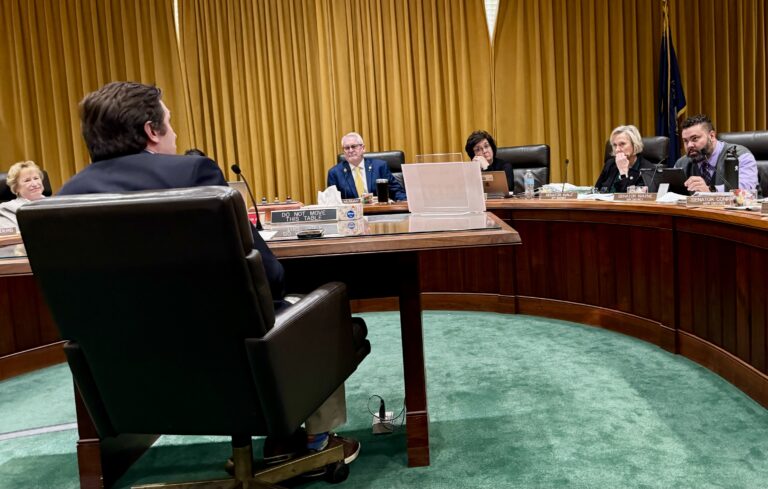
He said the amount of time he’s lost by getting trained on tools that ended up being shelved after “two months tops” was a net loss for his time working with students.
Curd said Dyslexico wants to work with the Nebraska Department of Education on a large-scale research study in schools next year and aims to help an estimated 295,000 Nebraskans with dyslexia.
“If we can get it in the hands of the youngest people possible and make an impact that lasts throughout their lives, that’d be huge,” Curd said.
Janae Harris said she participated independently with Dyslexico and described the software as “game changing.” She said her “fervent hope” is that LB 1253 helps get Dyslexico into the hands of more students.
“Without the ability to read and write, Nebraska youth cannot be productive citizens and reach success,” Janae said. “Who knows what others could achieve with the help of this grant.”
The committee took no immediate action on LB 1253.
Editor’s note: This article has been updated to clarify Janae Harris’ experiences with Dyslexico and the number of Nebraskans the company aims to help.
Nebraska Examiner is part of States Newsroom, a network of news bureaus supported by grants and a coalition of donors as a 501c(3) public charity. Nebraska Examiner maintains editorial independence. Contact Editor Cate Folsom for questions: [email protected]. Follow Nebraska Examiner on Facebook and Twitter.
Get stories like these delivered straight to your inbox. Sign up for The 74 Newsletter

;)